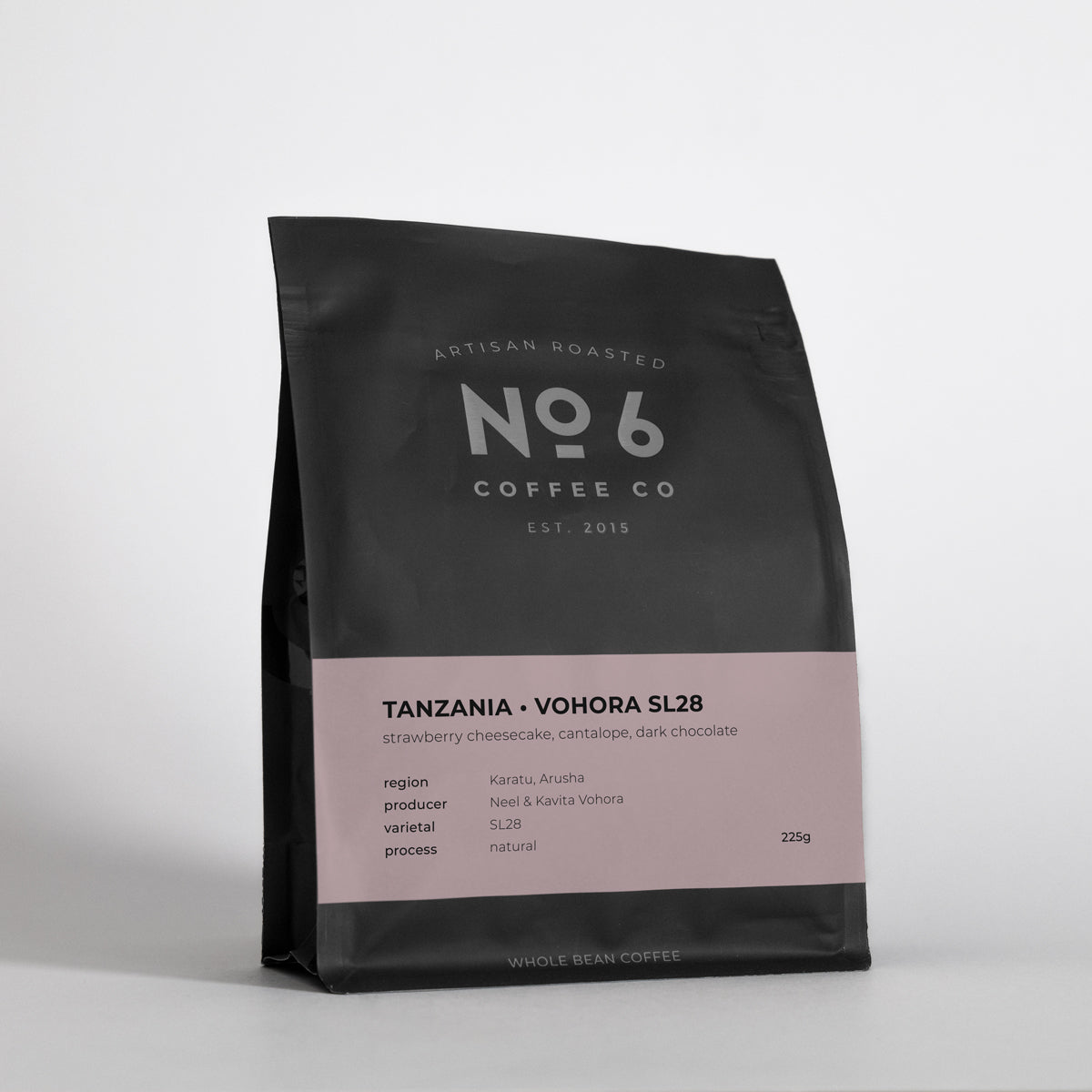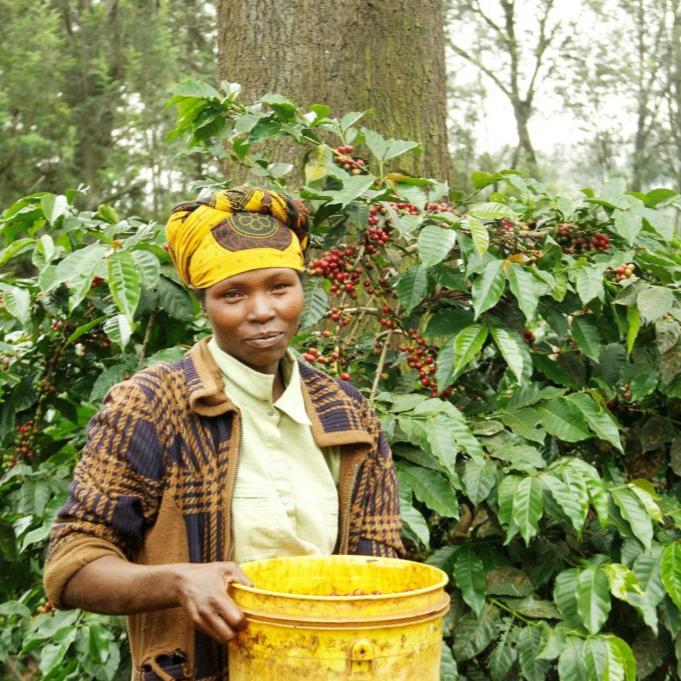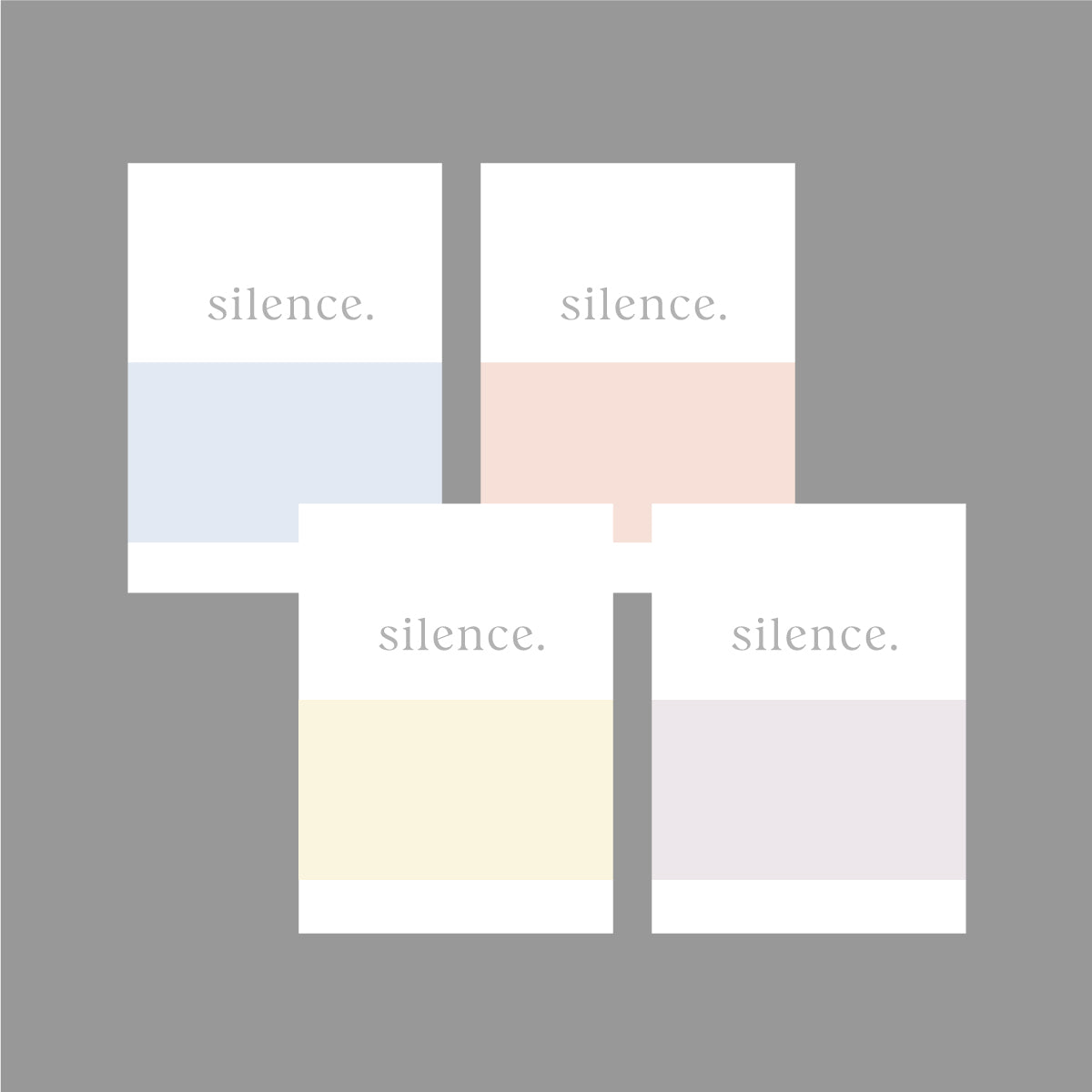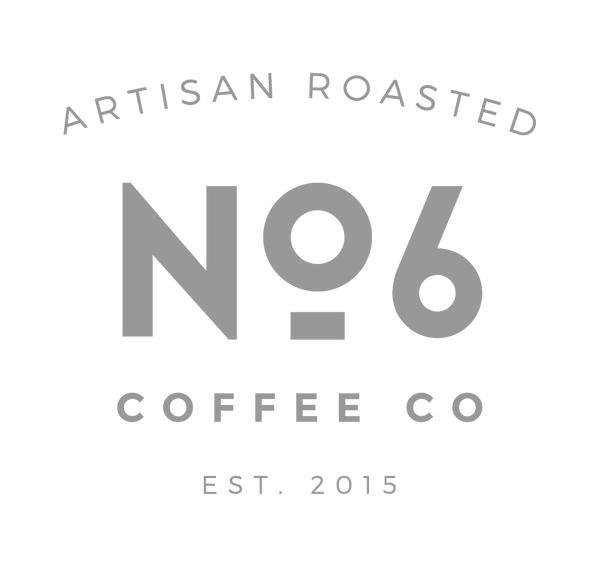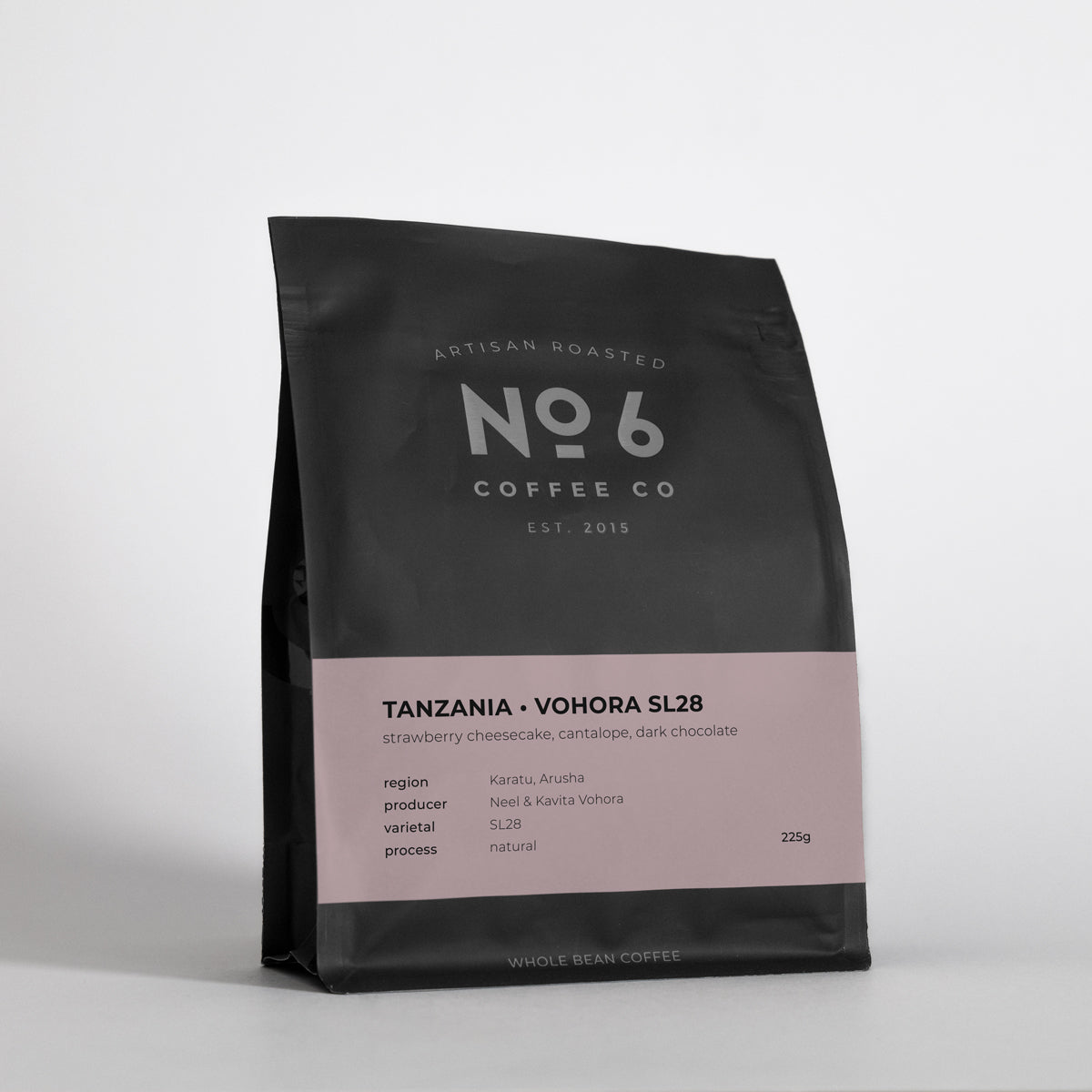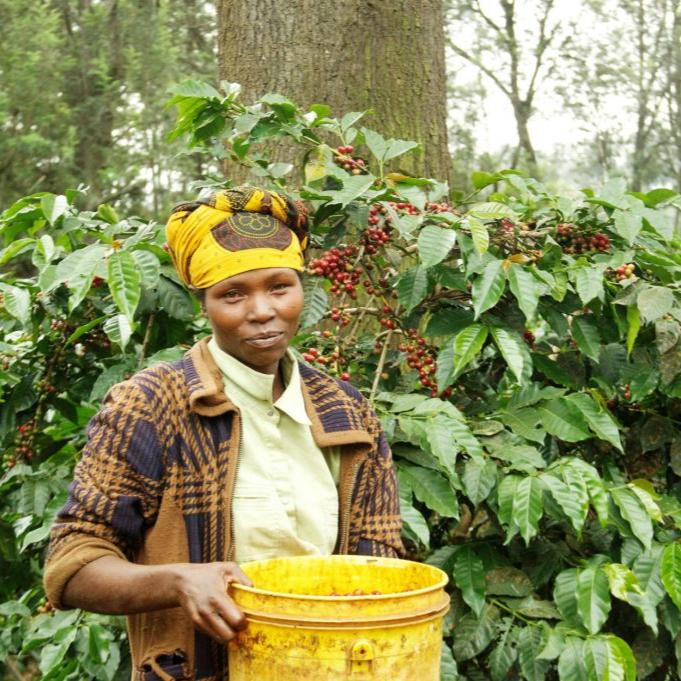Vohora SL28
Vohora SL28
| country | Tanzania |
|---|---|
| region | Karatu, Arusha |
| farm | Finagro Estate |
| producer | Neel and Kavita Vohora |
| altitude | 1650-1800 masl. |
| varietal | SL28 |
| process | natural |
| notes | strawberry cheesecake, cantaloupe, dark chocolate |
| profile | sweet, fruity, clean |
| importer | Royal Coffee |
style
roast level
This is a traditional natural SL-28 cultivar coffee from Karatu, Tanzania, produced by the Vohora family on their farm Finagro, located on the Ngorongoro caldera.
The flavor profile is layered and fruit forward with notes of blueberry, strawberry cheesecake, ripe cantaloupe, and dark chocolate.
Under the guidance of siblings Neel and Kavita Vohora, the Edelweiss and Finagro farms in northern Tanzania have evolved from well-managed estate farms into an innovative coffee enterprise. Spanning 1000 acres across the ridges of the Ngorongoro caldera, these farms are producing some of the most exciting coffee harvests in recent years. Among the Vohora family's favored cultivars is the SL-28, a variety selected in the 1930s for its drought resilience and exceptional cup quality. Originally from Tanzania, SL-28 has become renowned in Kenya and thrives on the Vohora farms despite its susceptibility to diseases like berry fungus. The Vohoras have also pioneered processing innovations, including cherry maceration prior to processing. For microlots like the SL-28, the pre-fermentation period is tailored by cultivar to optimize flavor. The SL-28 harvest undergoes several days of maceration on raised beds before completing the 2-3 week drying process and is then stored in GrainPro bags until milling in Arusha.
The farms are located on the outer ridges of the Ngorongoro caldera, a wildlife conservation area home to diverse species, including zebras, lions, and a small population of black rhinos. The estates, owned by the Vohora family since 1971, maintain native forest corridors that allow wildlife to migrate freely, though coffee trees occasionally suffer damage from elephants and water buffalo. The family’s involvement in coffee farming dates back to Neel’s grandfather, who arrived from India and worked as a farm manager for British colonists before Tanzania's independence. Today, Neel's father, Ajai, manages the export business from Nairobi, while Kavita oversees milling and sampling operations in Arusha.
Clean Coffee
Clean Coffee

We believe coffee should be both delicious and responsibly sourced. That’s why we only work with specialty-grade coffees that are carefully harvested, dried, and stored. The result is clean, safe coffee that reflects the care of everyone involved.
We’ve had a few questions lately about mold and mycotoxins in coffee. These concerns are understandable, especially with the rise of health-focused media highlighting potential contaminants in commodity-grade coffees. But it's important to contextualize this issue within the specialty coffee supply chain.
Mycotoxins, such as ochratoxin A (OTA) and aflatoxins, can develop when green coffee is improperly processed, dried too slowly, or stored in environments with high humidity and poor ventilation. These conditions are more common in lower-grade, bulk commodity coffees that are harvested and handled with minimal oversight.
The coffees we buy, on the other hand, are traceable, meticulously processed, and stored under controlled conditions. We work exclusively with specialty importers who conduct rigorous quality control at origin and upon arrival, including moisture content analysis, water activity measurements, and sensory evaluation. Coffees showing any signs of mold contamination would be eliminated long before they reach us. Moldy lots not only pose a safety risk, they simply don’t taste good and would fail basic cupping protocols.
While mold and mycotoxin testing isn’t typically a requirement in the specialty sector, it’s also not absent. In some producing countries, OTA testing is mandatory for export. And in others, lots above a certain size are routinely spot-checked by local quality control authorities. More importantly, the stringent handling and drying practices required to meet specialty standards make the presence of harmful mycotoxins highly unlikely.
We’re also attentive to how we store our green coffee, in sealed GrainPro bags, in a stable, low-humidity environment, and roasted in small batches to maintain quality and freshness.
If you'd like to dive deeper into specific protocols, we're happy to talk more. In short, we only work with importers we trust, who work with producers they trust, and quality control is built into every step. The coffees we choose to roast are clean, carefully handled, and selected with intention.
Shipping Rates
Shipping Rates
Our current shipping rates are as follows:
Local Delivery Rates within 2km
$5.00 for orders between $0-$20
$2.50 for orders between $20-$40
FREE for orders over $40
Canadian Shipping (with tracking)
Standard rates for orders between $0-$36
$10 for orders between $36-$75
FREE for orders over $75
US Shipping (with tracking)
Standard rates for orders between $0-$100
FREE for orders over $100
Packaging
Packaging
100% Recyclable
Our coffee bags are made of 100% recyclable plastic and widely accepted at recycling depots across Canada, making it easy for you to responsibly dispose. Its recyclable materials ensure that it can be repurposed efficiently, contributing to environmental sustainability efforts and promoting a circular economy model.
Out of stock
Couldn't load pickup availability
